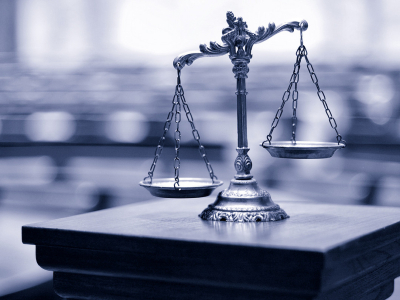Mental Health and Criminal Defense
Jan. 11, 2023
Any time you’re facing criminal charges, you should work with a qualified criminal defense attorney who can investigate your case, look at the facts, and work with you to build a strong defense. However, if you feel your crime occurred in part or in whole because of mental health problems that you’re suffering from, you’ll need to approach your charges from a different angle. It’s essential that you choose a lawyer with experience working on these types of cases who can adequately assess your competency to stand trial and determine whether an insanity defense is warranted. 
For help understanding your choices in a circumstance like this, call us at The Law Office of John Goalwin, serving those in Torrance, Norwalk, Van Nuys, Compton, and Los Angeles, California.
Common Mental Health Disorders
Not all mental health disorders can be used in a criminal responsibility defense, and just because you made a bad decision, were under the influence of drugs, or were simply negligent, doesn’t mean that this defense will help you when facing a judge. However, there are some conditions that are commonly seen as defenses, such as schizophrenia, severe depression, bipolar disorder, and PTSD.
Mental Health as a Defense
Simply having one of these conditions is not enough to exonerate you from the crime you were arrested for. Rather, you have to prove that your condition had a severe impact on your state of mind at the time you committed the crime. This is referred to as criminal responsibility. To use a mental health defense successfully, your attorney must prove that your condition prevented you from being aware of what you were doing or that you were so impaired, you didn’t know the difference between right and wrong.
In a case like this, your competency to stand trial will also be under scrutiny. For example, if your condition makes it extremely hard or impossible for you to adequately communicate with your legal team or the judge, you may be deemed incompetent. In some cases, the judge will postpone the trial until you are ready, but only in rare cases will they throw out the case completely.
Proving Mental Health Claims
Substantial evidence is key to proving a mental health claim, and this can be done in several ways, such as through a doctor’s diagnosis, prescription medication history, eyewitness testimony, or character witness testimony of those who know you. Ideally, you’ll already have a detailed medical record of your condition that includes test results, multiple observations, and evaluations. It’s also possible to bring in experts to evaluate the defendant before the trial takes place and provide their professional opinion under oath. Ultimately, your attorney must prove that you were incapable of knowing right from wrong or that you couldn’t control your actions.
Sentencing and Rights of Prisoners With Mental Health Disorders
Even a successful mental health defense doesn’t mean you’re free of consequences for your crime. In most cases, if you’re deemed incompetent or that you lacked criminal responsibility, you’ll likely be admitted to some kind of mental health facility where you’ll get professional treatment. If your crime was minor, it’s possible you’ll be recommended to an outpatient deferment program or a substance abuse program. These are not “get out of jail free” passes and shouldn’t be pursued unless you have legitimate mental health issues. This is why you must always be 100% honest with your lawyer so they can work for you on the best possible outcome.
Fight for Your Rights
If you’re in the Los Angeles, California, area and are looking for a firm with the skills and knowledge to help with a case like this, turn to us at The Law Office of John Goalwin. With over 45 years of experience, we’ll fight to protect your rights every step of the way.